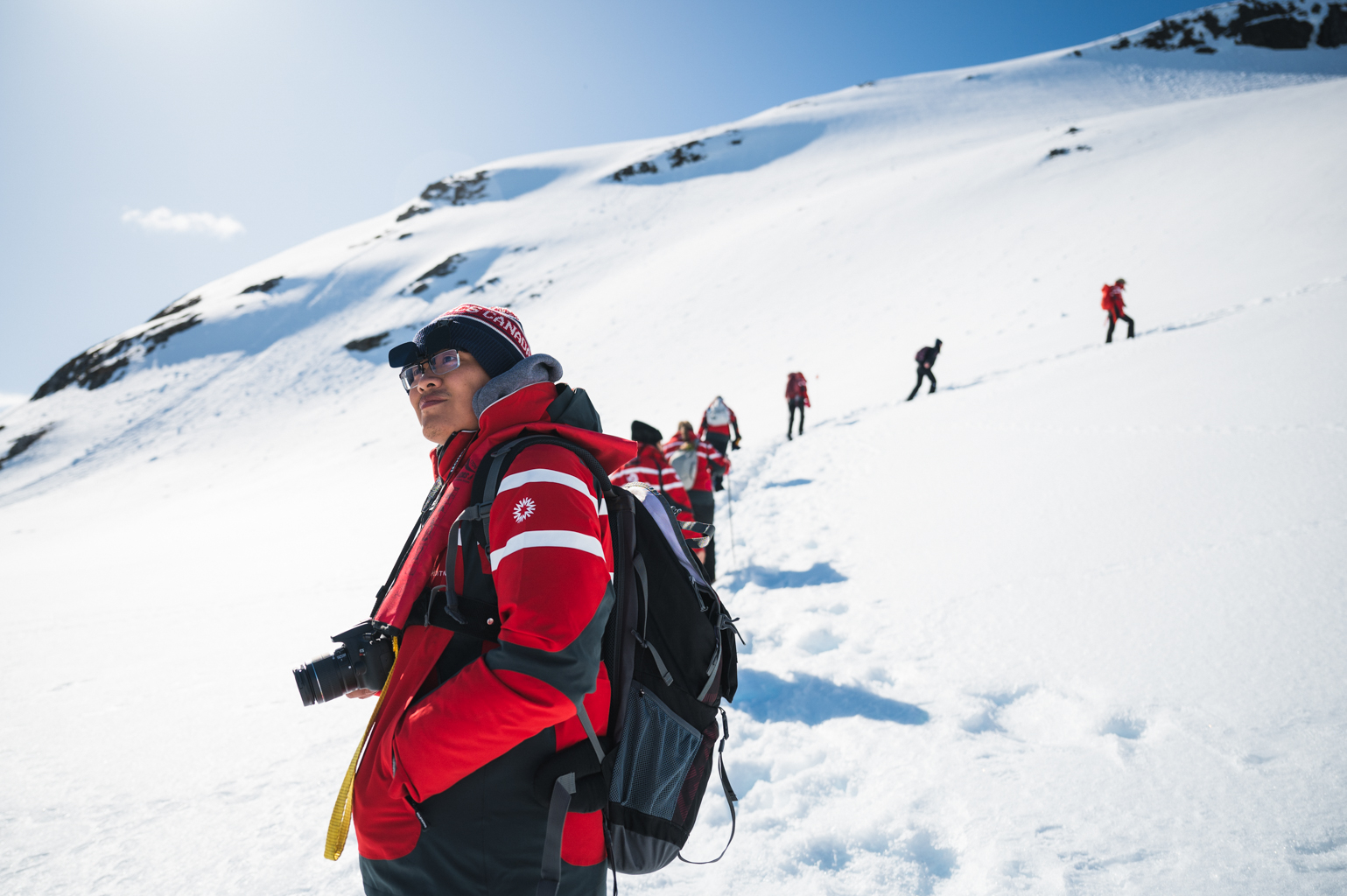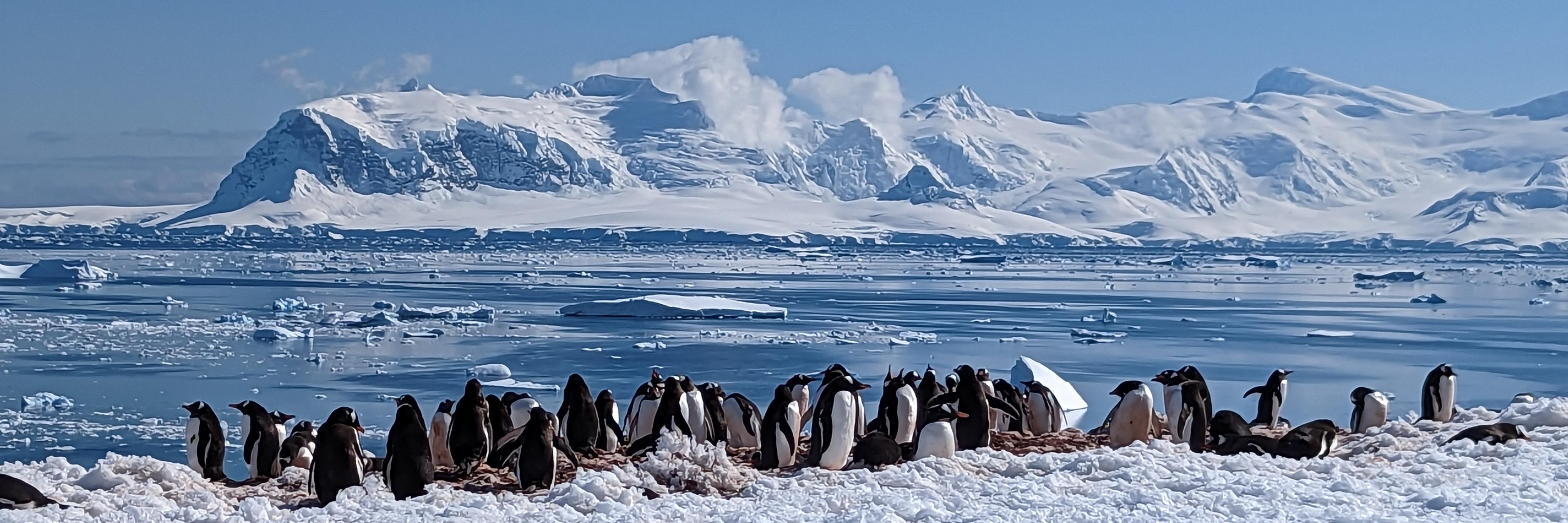Antarctica - the southernmost point of the world, which only under a million people have seen in history, recently got a visitor from our very own UTSC alumni community.
We sat down with alum Da Chen (HBA 2017 UTSC MSc Pl 2020) to ask him about his once-in-a-lifetime opportunity to visit the frozen continent—and how it changed his perspective on the world and our role in it.
Read on to find out what led him onto this spectacular adventure and how you, too, could walk in his snowy steps.
- How was Antarctica? Was it how you imagined it to be?
Antarctica was magical, wonderful, and awesome in so many ways.
My understanding of Antarctica came from the stories of early explorers, so I went into the trip with an open mind and embraced the possibilities of what I might see. Once I was in Antarctica, I realized that it was all those stories but also so much more.
There is a peaceful beauty in Antarctica, with nothing but the sound of nature. It was amazing waking up to the sight of glaciers, icebergs and ice-covered mountains all around me, with penguins' colonies in the distance and whales and seals swimming all around. It was also the strong wind, that cold breeze that makes you feel so alive in this remote part of the world. The 11:30 pm sunset, the blue water. I don’t think I would have imagined the real Antarctica with my wildest imaginations.

-
What preparations did you have to make for the trip? Did you have any concerns?
This trip was a delegation to learn about Canada’s potential role as a consultative member of the Antarctic Treaty System and (in combatting) climate change (causing polar ice caps to melt at an alarming rate). I did a lot of reading and learning about the politics, history and science that is happening in Antarctica. I didn’t know a whole lot about Antarctica prior to this trip so everything I learned was new. I also had to shop for new gear.
There were two main worries prior to my departure, the first was COVID-19. We needed a negative test to travel, and I was relieved to get mine.
The second thing I was worried about was whether or not I would get along with the rest of the delegation. Thankfully, they were some of the most amazing people I've ever met.
- What's your biggest takeaway from this unique experience?
My biggest takeaway is that policies and politics impact all aspects of our planet. Even a “remote” place like Antarctica is governed by the Antarctic Treaty System that covers scientific research permits, fishery, tourism and tourism cap and much more.
This trip taught me a lot about international politics and how treaties and international relationships govern different parts of the world and why we should care about politics and decisions that are being made, both at home and abroad, which could have long-term ramifications for the entire world.
- How did this event broaden your understanding of the world we live in?
This opportunity has inspired me to look for new opportunities to learn, share and grow as an individual.
Antarctica also showed me nature’s beauty in all its power. Feeling and seeing the powerful waves while we travelled through the Drake Passage, you feel small and tiny and at the mercy of the world. Seeing the majestic whales and the huge icebergs, you can’t help but appreciate what nature can do.
However, at the same time, this trip also gave me hope. I was also inspired by my fellow travelers and friends about the possibilities of a better world that we can create.
I don’t think I would have imagined the real Antarctica with my wildest imaginations.
- You said in your blog, “…I also see the possibilities that exist and how our country – and world – can be better if we only listen more and talk less.” Can you elaborate on this?
We live in a world where there is a lot of noise, be it on social media or in mainstream media. Everyone wants their opinion to be heard, and we end up in constant debates and arguments about things like politics, science and much more. I believe we need to take a step back and listen.
We need to listen to what others have to say because that is the only way we can learn to understand each other. We shouldn’t be focusing on talking over others or forcing our perspectives on others but rather listening to where they are coming from and then working together to build a better future.
- How did you come to be a part of this delegation? How can UTSC alums and students participate in climate change efforts such as these?
I am an alumnus of the Students on Ice program. I was part of their 2017 Arctic expedition. Since my 2017 expedition, I have participated in many conferences with Students on Ice, was part of their Alumni Council, and helped out with their amazing Blue Futures Pathways program. This engagement led to an invitation to be a part of this delegation to Antarctica.
For UTSC students and alumni who are interested, I would recommend the Blue Futures Pathways program run by Students on Ice. It’s a program that connects youth across Canada with education, employment and funding opportunities to inspire and support them in developing successful careers in the Sustainable Blue Economy.
People interested in learning more can connect with me at dautsc.chen@mail.utoronto.ca.
Watch a video recap of the delegation here.
